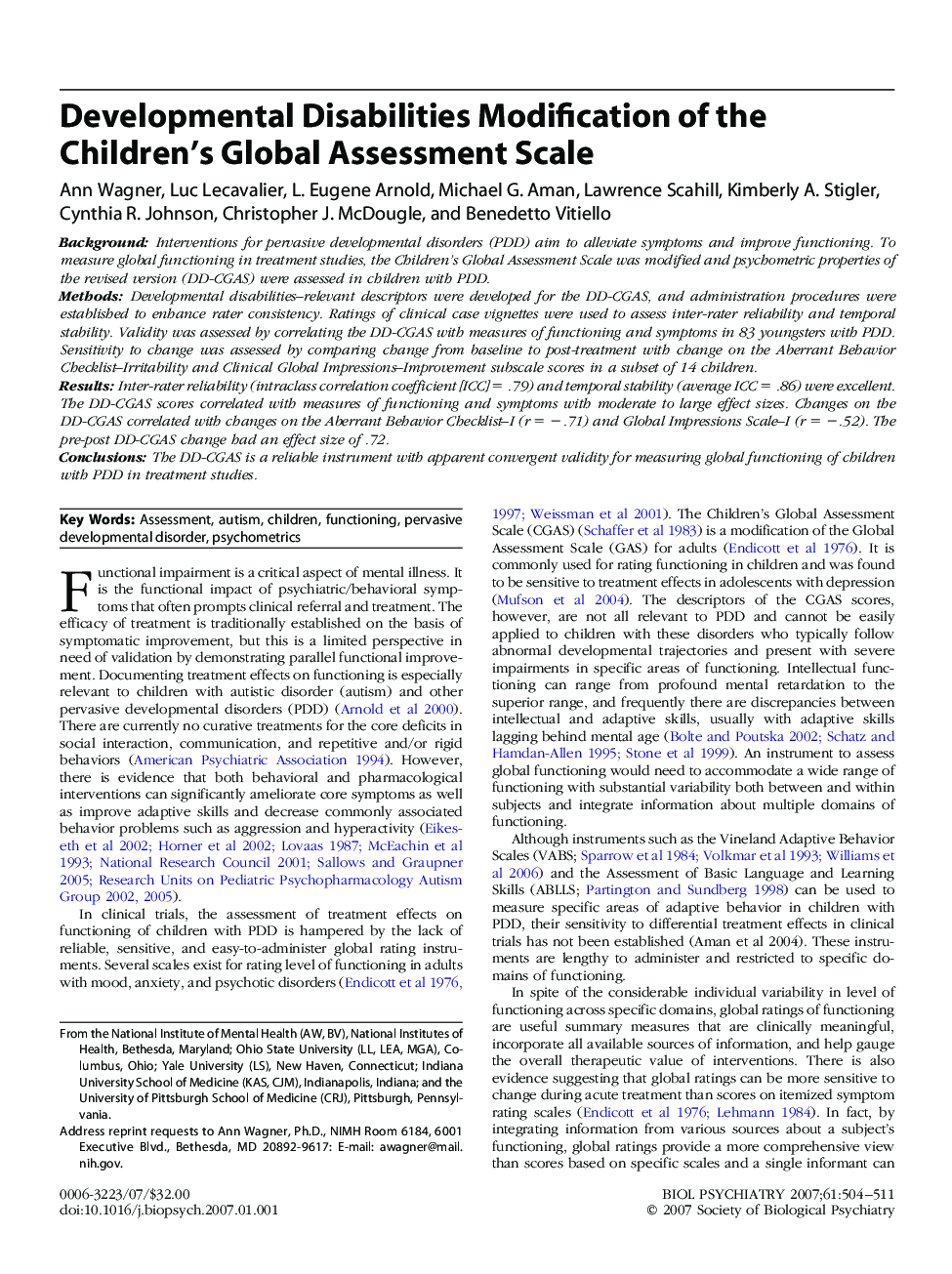| Article ID | Journal | Published Year | Pages | File Type |
|---|---|---|---|---|
| 4180760 | Biological Psychiatry | 2007 | 8 Pages |
BackgroundInterventions for pervasive developmental disorders (PDD) aim to alleviate symptoms and improve functioning. To measure global functioning in treatment studies, the Children’s Global Assessment Scale was modified and psychometric properties of the revised version (DD-CGAS) were assessed in children with PDD.MethodsDevelopmental disabilities–relevant descriptors were developed for the DD-CGAS, and administration procedures were established to enhance rater consistency. Ratings of clinical case vignettes were used to assess inter-rater reliability and temporal stability. Validity was assessed by correlating the DD-CGAS with measures of functioning and symptoms in 83 youngsters with PDD. Sensitivity to change was assessed by comparing change from baseline to post-treatment with change on the Aberrant Behavior Checklist–Irritability and Clinical Global Impressions–Improvement subscale scores in a subset of 14 children.ResultsInter-rater reliability (intraclass correlation coefficient [ICC] = .79) and temporal stability (average ICC = .86) were excellent. The DD-CGAS scores correlated with measures of functioning and symptoms with moderate to large effect sizes. Changes on the DD-CGAS correlated with changes on the Aberrant Behavior Checklist–I (r = −.71) and Global Impressions Scale–I (r = −.52). The pre-post DD-CGAS change had an effect size of .72.ConclusionsThe DD-CGAS is a reliable instrument with apparent convergent validity for measuring global functioning of children with PDD in treatment studies.
